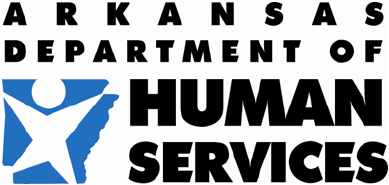
Arkansas Department of
Human Services
Your Guide To
Medicaid
Estate
Recovery
In Arkansas

Page 2
Table of Contents
What is Estate Recovery? 3
Who does it affect? 4
What is a HCBS Waiver Program? 4
What is an estate? 4
What do heirs pay? 5
What are the exceptions? 5
Is there exempt property? 6
How does it work? 7
What is Undue Hardship? 7
Does Medicaid take your house? 8
Nursing home residents under age 55? 9
What about QMB? 9
What about property in another state? 9
Long-term care in another state? 10
Affect of wills on estate recovery? 10
What if I transfer assets? 10
Qualified LTC Partnership Policy? 11

Page 3
What is Medicaid Estate Recovery?
Medicaid is a government program that pays
for healthcare for people with limited income
and assets. One type of service that Medicaid
pays for is long-term care services. Long-
term care services assist persons in need of
help with activities of daily living. Medicaid
pays for long-term care services in the per-
son’s own home or for residents living in
Level II Assisted Living Facilities, Intermedi-
ate Care Facilities for the Mentally Retarded
(ICF/MR) and nursing homes. The Medicaid
programs that pay for long-term care services
at home are called home and community-
based services waivers.
To help pay for the long-term care services,
every state is required by federal law to have
a Medicaid Estate Recovery program. If you
received Medicaid long-term care services,
the Arkansas Department of Human Services
(DHS) is required to file a claim against your
estate upon death. In some cases, DHS may
not pursue the claim, and the state will never
pursue a claim for more money than it paid
for your long-term care services.

Page 4
Who does estate recovery affect?
Estate recovery applies only to:
Individuals age 55 or older who received
Medicaid in a nursing home or Intermedi-
ate Care Facility for the Mentally Retarded
(ICF/MR) or in a home and community-
based waiver program; and
Individuals under age 55 considered per-
manently institutionalized in a nursing
home or ICF/MR.
What is a Home and Community-Based Waiver
Program?
Medicaid programs that allow individuals in
need of long-term care services to receive
them at home or in the community. In Arkan-
sas, these programs currently include the
DDS/ACS Waiver, ElderChoices, Alternatives
for Adults with Physical Disabilities and Liv-
ingChoices (Assisted Living Facility Waiver).
What is an estate?
An estate is property, such as money, a house,
a lawsuit settlement or other things of value
that a person leaves to family members or
others (heirs) when he or she passes away.

Page 5
What will the heirs to the estate have to pay?
The amount of the estate recovery claim is the
amount Medicaid paid for long-term care ser-
vices for the recipient after the Medicaid re-
cipient reached age 55, or younger if deter-
mined permanently institutionalized. If the
total of the claim exceeds the value of the es-
tate, heirs will not be liable for the balance.
Are there times when the state will not pursue a
claim against the estate?
Yes, the state will not pursue a claim when:
There is a spouse who is still alive.
There is a child under 21 years of age.
There is a child of any age who is blind or
disabled. This child did not have to live
with or be dependent on the recipient at
the time of their death.
The state may also choose to waive its claim
if the DHS Hardship Waiver Committee de-
termines that:
Recovery will create an undue hardship
for other surviving family members, or
Recovery is not cost effective

Page 6
Is there property that the state will not collect
on?
Yes, these may include:
A home, when:
There is a son or daughter currently
living in the home and was living in
the home for at least two years be-
fore the recipient entered the nurs-
ing home and who provided care to
the recipient which permitted the
recipient to live at home longer.
There is a brother or sister currently
living in the home and who lived in
the home for at least one year before
the recipient entered the nursing
home.
Assets that pass directly to a benefici-
ary independently of the probate proc-
ess. Some examples of this may in-
clude:
Insurance policy proceeds
Retirement Accounts, such as IRAs
Pension plans
Mutual funds
Deferred compensation plans

Page 7
How does Estate Recovery work?
When a person applies for Medicaid long-
term care services, DHS provides a notice
that explains estate recovery. When the per-
son dies, DHS will determine if estate recov-
ery is appropriate, file a claim and explain
how the representative may request an undue
hardship waiver.
What is Undue Hardship?
Estate recovery may be waived if recovery
would result in undue hardship for the heirs
of the estate. The representative of the estate
will receive a notice of estate recovery at the
death of the recipient which provides instruc-
tions on how to apply for an undue hardship.
The DHS Hardship Waiver Committee will
determine if undue hardship exists. The com-
mittee considers the following in making their
determination:
The estate asset subject to recovery is
the sole income-producing asset of the
beneficiaries of the estate;
Without receipt of the proceeds of the
estate, a beneficiary would become eli-
gible for federal or state benefits;
(continued)

Page 8
Undue Hardship (continued)
Allowing a beneficiary to receive the in-
heritance from the estate would enable a
beneficiary to discontinue eligibility for
federal or state benefits;
The estate asset subject to recovery is a
home with a value of fifty percent (50%)
or less of the average price of homes in
the county where the homestead is lo-
cated; and
Other compelling circumstances.
If the representative doesn’t agree with the
committee’s decision, they may file an appeal.
Is it true that Medicaid takes your house when you
enroll?
No, Medicaid does not “take” nor put a lien
against a recipient’s home while he or she is
alive. When the recipient dies and it is deter-
mined that estate recovery does apply; DHS
will file a claim against the estate. The judge
will then decide what will have to be paid to
DHS. If it doesn’t go to probate, DHS will is-
sue a demand notice with the county clerk’s of-
fice. This will require the county clerk to notify
DHS if the house is sold or goes to probate, at
which time DHS will file a claim.

My husband is 45 years old and has been in an
accident. His doctor wants him to move to a
nursing facility for about 3 months for rehab ser-
vices. If we apply for Medicaid, would he be sub-
ject to estate recovery?
No, since your husband is under age 55 and
his stay in a nursing home is considered tem-
porary (not permanently institutionalized),
estate recovery would not apply to him.
I’m receiving QMB Medicaid. Does that mean
estate recovery will apply to me?
No, QMB or other Medicare Savings catego-
ries do not provide long-term care services, so
estate recovery would not apply to you.
Is property that I own in another state exempt
from recovery?
Not necessarily. Any property you own, re-
gardless of location, can be part of your estate
and subject to recovery.
Page 9

Page 10
If I receive long-term care services in another
state as well as Arkansas, which state will file a
claim?
Both states may file a claim. The probate
court will determine how to divide the estate
between the competing claims.
I want to will my home to my children. Can the
state still take it?
A will does not protect your home from estate
recovery. All claims against an estate, includ-
ing Medicaid estate recovery claims, must be
paid before property can be distributed as
specified in a will.
What if I transfer all my assets now to avoid es-
tate recovery?
Medicaid has very strict penalties in regards
to transferring assets. Giving away, selling
for less than fair market value, or restricting
your access to any type of property or finan-
cial instrument may cause you to be ineligible
for Medicaid long-term care coverage for
months or possibly for up to five years based
on the total amount of the transfer and ser-
vices requested. Before making any changes
to your assets, it would be best to consult an
attorney.

Page 11
I have assets protected through a Qualified Long
-Term Care Insurance Partnership Policy. Will it
be subject to Estate Recovery?
No, any disregarded assets under a Qualified
Long-Term Care Partnership Policy remain-
ing at the death of the policyholder is exempt
from estate recovery. Any other assets not
disregarded through a Qualified Long-Term
Care Insurance Partnership Policy will be
subject to estate recovery.
This publication was produced for informational
purposes only and should not be construed as legal
advice. The information in this publication was cor-
rect at the time of its printing, but laws and rules can
change. This book is not a legal document. It is a
guide, not a contract. DHS is not responsible for
information in this guide that is no longer correct.
If you have additional questions about Medicaid
Estate Recovery or need advice concerning estate
planning, please contact an Elder Law attorney.

If you need this publication in a differ-
ent format, such as large print, contact
your DHS county office.
PUB 428
(1/10)
